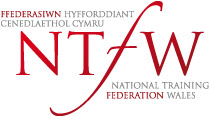
Supporting the professional learning journey of the WBL workforce
It has been an exciting period for work-based learning in recent years. There have been a number of key developments on the professionalisation journey for WBL practitioners in Wales: from registration with the Education Workforce Council in April 2017, followed by the launch of the Professional Standards for FE teachers and WBL practitioners in November 2017, to an exclusive programme of professional learning coordinated by NTfW and supported by Qualifications Wales.
NTfW has just completed a series of Quality Matters professional learning workshops for WBL practitioners across Wales and we are grateful to Qualifications Wales for grant funding all of our events. All workshops were delivered by Jo Kelso at LearnOn and the feedback from delegates has been really positive.
The workshops were developed in response to recommendations for improvement identified by the Qualifications Wales sectoral reviews published between 2016 and 2018.
To provide further support for the WBL sector, NTfW has collaborated with Jisc to develop a new professional learning workshop to meet the professional standards for FE teachers and WBL practitioners. The workshop is open to NTfW members and will be run in both North and South Wales.
NTfW was pleased to endorse the professional standards that were launched by the Welsh Government in November 2017 and representatives from within the sector were delighted to be actively involved in their development.
The professional standards were developed by a team of professionals from within the sector, with an equal split of FE and WBL practitioners, and the project was led by Professor Bill Lucas from the Centre for Real-World Learning at Winchester University who has vast experience in vocational teaching and learning at an international level.
One of the key elements of the standards is the focus on those who deliver vocational qualifications as ‘dual professionals,’ as experts in their industry but also as expert teachers, developing learners’ vocational skills and knowledge. The importance of dual professionalism as a guiding principle of the new standards is key. This is a recognition of the uniqueness of the WBL practitioner and is important in acknowledging the complexity of the role, and the importance of professional learning for maintaining both occupational knowledge, as well as strengthening teaching and assessment skills. Our sector was keen to ensure that maintaining industry knowledge and experience remains a key priority.
Another important development for our sector in recent years has been the expansion of EWC registration. In April 2017, WBL practitioners were required to register as professionals with the Education Workforce Council for the first time. This represents a positive step forward and something that NTfW had long campaigned for, to achieve parity of status.
Professional registration has been largely welcomed by the sector. To be part of the professional body that represents the entire education and training workforce is important for WBL, to gain recognition and status alongside teachers and lecturers. And so the introduction of the professional standards, combined with professional registration, signal the key role our practitioners play, and enhancing the esteem and status of the WBL sector, as a valued component of the whole education and training workforce.
Such developments serve to highlight the changing role of the WBL practitioner, to one that incorporates a greater degree of teaching, training and coaching than ever before. As a sector, WBL has become used to change, but the role of the WBL practitioner is a complex one and is subject to regular change and adaptability. The Welsh Government’s policy drive to expand the higher level apprenticeship offer, the need to comply with the Prevent duty, and the importance of developing learners’ twenty-first century skills for them to be able to compete in the digital age as part of a global economy; these are just a few examples of the increasing complexity of the role of the WBL practitioner.
NTfW is well placed and equipped to support the workforce to address these challenges and we continue to seek new opportunities for professional growth and innovation on the journey to WBL excellence. Through working groups and networks, training events and stakeholder engagement activities, NTfW serves to inform the network and provide professional learning to deliver a high quality, transformative WBL programme for learners and employers.
Kelly Edwards, Head of Work-based Learning Quality, NTfW
More News Articles
« Success for all at Skills Competition Wales — Double Honours for NTfW Equality and Diversity Lead »


